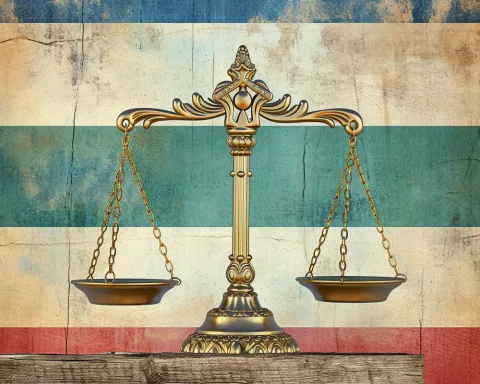Fulgence Kayishema, a former Rwandan police inspector, was apprehended on a grape farm in Paarl after being on the run for 22 years for his role in the 1994 Rwanda genocide. The International Residual Mechanism for Criminal Tribunals (MICT) charged him with genocide, complicity and conspiracy to commit genocide, and crimes against humanity.
Kayishema’s Role in the Genocide
Kayishema played a direct role in planning and executing the horrific massacre of over 2,000 Tutsis who had sought refuge in a church. He procured and distributed petrol to burn down the church with refugees inside. When the fire failed, he used a bulldozer to collapse the church, burying and killing those inside. He subsequently oversaw the transfer of corpses from the church grounds into mass graves.
The Search for Kayishema
Kayishema evaded capture by using various aliases and false documents and relying on a network of trusted supporters. His arrest was made in response to an Interpol red notice, and he had been living under the false name of Donatien Nibashumba. The United States had offered a $5 million reward for information leading to Kayishema’s arrest, transfer, or conviction, but it remains unclear whether this played a role in his eventual capture.
Legal Process
Kayishema appeared in court in Cape Town, where the charges against him were read out, marking the beginning of the legal process unfolding against him. The MICT took over the work of the International Criminal Tribunal for Rwanda (ICTR) in 2015, which sentenced 62 people, including handing down a 30-year term to former minister Augustin Ngirabatware, and acquitted 14.
Convictions and Trials
Rwanda began trying genocide suspects in 1996, executing 22 of them by firing squad in a single day in April 1998. The country abolished the death penalty in 2007, removing the main obstacle for the ICTR to extradite genocide suspects to Rwanda for trial. Between 2005 and 2012, over 12,000 community-based courts put nearly two million people on trial and convicted 65%, sending most to prison. Other convictions have been handed down in various countries.
The capture of Fulgence Kayishema offers a small measure of justice and accountability for the atrocities that occurred during the 1994 Rwanda genocide. As the international community continues to grapple with its tragic legacy, the legal process will unfold against Kayishema to ensure that justice is served.












